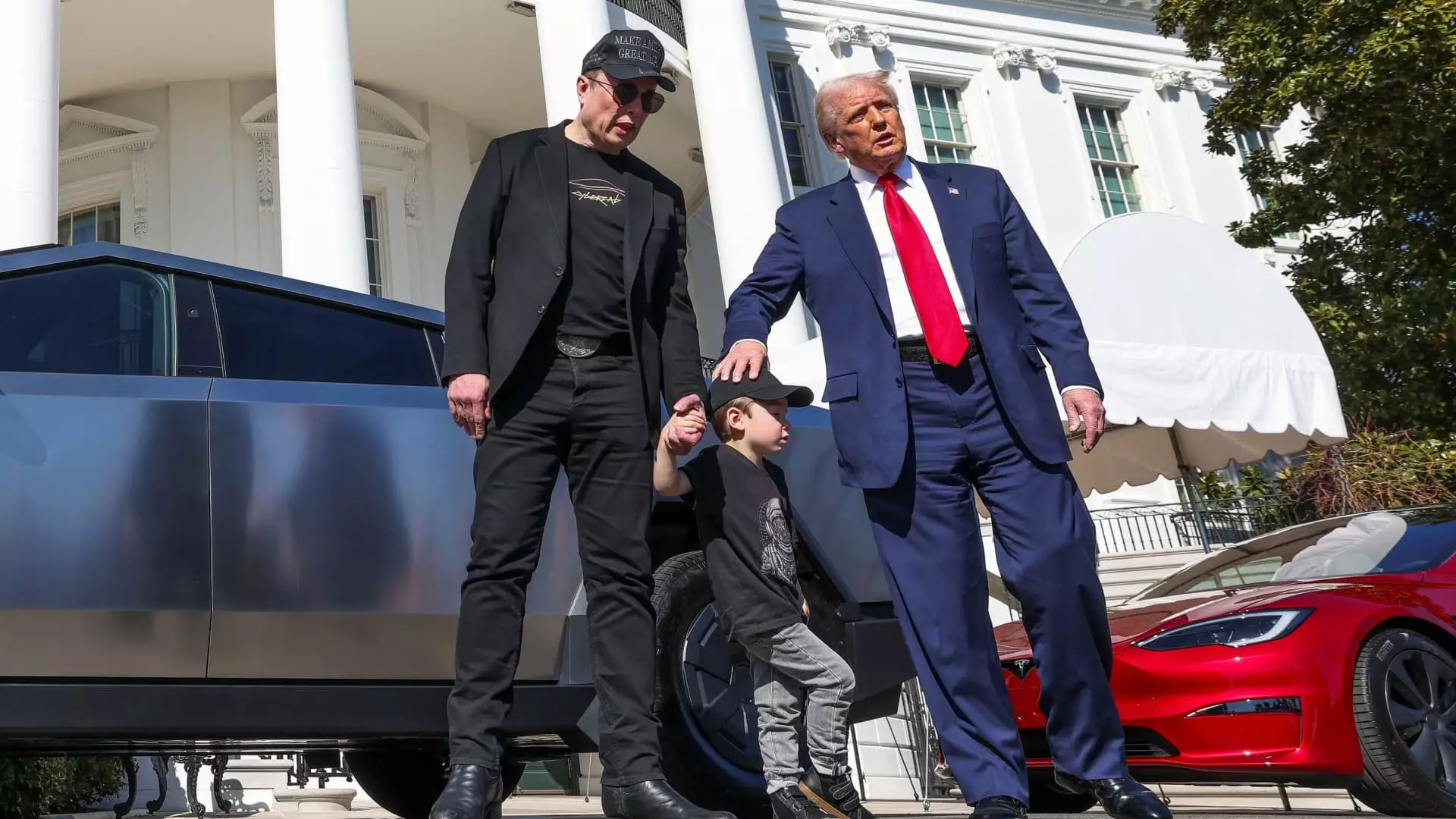In a world where innovation meets economic uncertainty, few names resonate as strongly as Elon Musk. The enigmatic entrepreneur recently spoke out about a concern that has become a dark cloud over many industries: tariffs. During Tesla’s latest earnings call, Musk painted a picture of a company at a crossroads, beleaguered by economic factors that seem to swirl uncontrollably around it. A staggering 20% decrease in automotive revenue and a 71% nosedive in net income hints at deeper vulnerabilities lurking beneath Tesla’s polished surface. Yet, amidst these alarming figures, Musk attempted to position Tesla as a resilient outlier, asserting that its localized supply chains shield the automaker from the brunt of tariff-related chaos. This is a bold claim, yet it does little to hide the fact that Tesla’s fortunes are not solely dictated by its internal operations but rather by external forces largely out of its control.
A Clash of Titans: Musk vs. Trump
In an unexpected twist, Musk, typically perceived as a staunch ally of the previous administration, expressed dissatisfaction with high and unpredictable tariffs. His relationship with President Trump has always been complex. While Musk has garnered influence as an adviser, particularly in the realms of technology and renewable energy, his vocal criticism of tariff policies indicates a fracture in this political alliance. When Musk referred to Peter Navarro, Trump’s trade adviser, as “a moron,” it wasn’t just an offhand remark; it exhibited a growing frustration with the administration’s trade strategies that could harm U.S. companies in the long run.
Such candid remarks echo a growing sentiment among many center-left thinkers who argue that economic policies should prioritize not just the wealthy elite but also promote growth across the board. Trade should not serve as a weapon that disrupts an already fragile economy; rather, it ought to facilitate a flourishing ecosystem of businesses that contribute to a balanced market.
The Toll of Tariffs on Innovation
The impact of tariffs is particularly pronounced on industries invested in the future of sustainable technology, and Musk’s highly dependent energy sector faces significant challenges. As Tesla relies on imported materials for its energy storage solutions, particularly lithium iron phosphate battery cells sourced from China, the unpredictable nature of tariffs could pose a long-term risk to its operations and growth. It raises pertinent questions about the future of innovation in the face of protectionist policies. Will companies like Tesla be forced to choose between maintaining their commitment to green technology and appeasing nationalist trade policies?
Musk has stated that he is pursuing local production of critical components in the United States. However, translating this ambition into reality will require significant time and investment. The innovation that Musk champions is not merely about manufacturing vehicles; it is about revolutionizing the automotive and energy industries. Tariffs, by creating obstacles, inevitably stifle this innovative spirit.
Local Manufacturing: A Double-Edged Sword
Musk’s declaration that Tesla is the most “vertically integrated” car company strikes a nerve. Certainly, Tesla’s approach to localizing parts of its supply chain is commendable, yet the reality remains that it still relies heavily on international suppliers for crucial components. The ambitious plan to enhance local production capabilities is admirable, yet it often feels like a Sisyphean task. The hurdles presented by tariffs complicate this process and could deter the shift towards a more self-sufficient manufacturing model.
While Musk’s assertion of focusing on U.S. manufacturing is a step in the right direction, it begs the question: is it enough? The disconcerting dependence on global supply chains raises doubts about the resilience of even the most forward-thinking companies. For a sector ostensibly committed to sustainability, an overreliance on foreign resources serves as a startling contradiction.
A Call for Predictability in Trade
Musk’s candid advocacy for “predictable tariff structures” and “free trade” reflects an essential reality for companies striving to navigate the tumultuous seas of international trade. Businesses require the kind of stability that allows them to forecast and plan for the future effectively. Constant fluctuations in tariffs threaten to upend not just corporate strategies, but the livelihoods of workers entrenched in these industries. While Musk’s influence can be significant, the ultimate decisions lie in the hands of policymakers who should prioritize informed and balanced economic strategies.
Perhaps it’s time for a re-evaluation of what trade policies can achieve. Tariffs should not stifle innovation or act as barriers to growth; instead, they should promote fair competition and create an environment where companies can thrive. As the political landscape continues to evolve, there’s a pressing need for a discourse that fosters economic collaboration rather than divisiveness—an opportunity not just for Tesla, but for the entire country.

